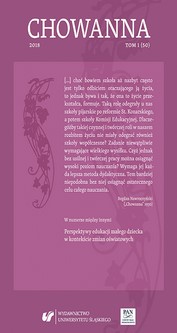Implikacje teorii dezorganizacji społecznej dla polityki społecznej oraz pracy socjalno-pedagogicznej w środowiskach wielkomiejskich
Implications of the Theory of Social Disorganization for Social Policy and Socio-Pedagogical Work in Metropolitan Environments
Author(s): Maciej BernasiewiczSubject(s): Social Philosophy, Behaviorism, Social Theory
Published by: Wydawnictwo Uniwersytetu Śląskiego
Keywords: social disorganization; social cohesion; informal social control; collective efficacy; day support centre;
Summary/Abstract: The article describes how social disorganization is conditioned by such phenomena as social cohesion, informal social control and the ability of the community to control criminal behaviour. The article reviews the research indicating the harmful practice of creating social housing zones in large cities, in which young people with low cultural and economic capital are concentrated. This tendency is not matched by the regularity of high cohesion and high informal social control in ethnically distinct neighbourhoods, but uniform in this respect, which has been revealed in the research. The response of educators, social workers, and youth activists to disadvantage areas is the organization of street work centers and group work centers in these places.
Journal: Chowanna
- Issue Year: 2019
- Issue No: Sp. Issue
- Page Range: 339-351
- Page Count: 13
- Language: Polish

